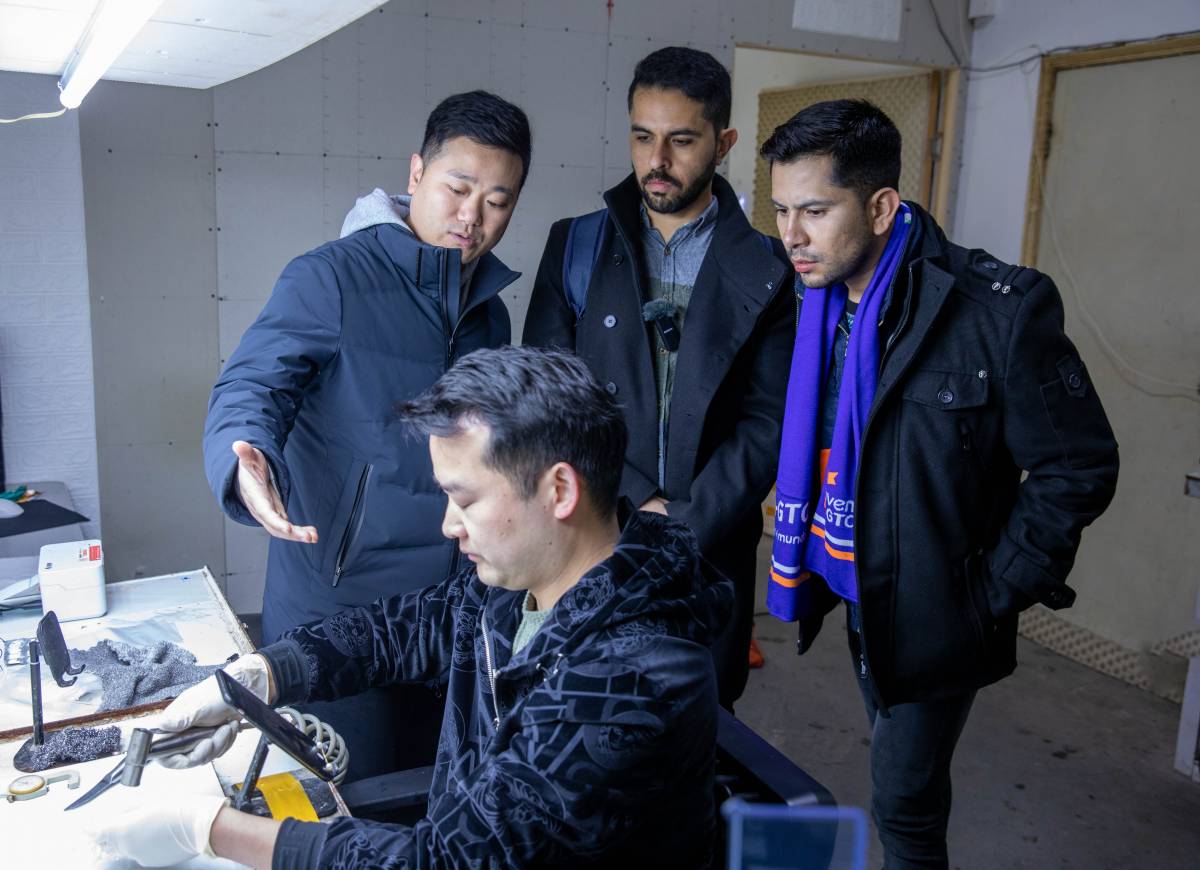
Mexican GDT student joins a pearl livestream on Taobao Live. Photo credit: Alibaba Group
Alibaba Group’s digital economy training program Global Digital Talent (GDT) hosted its first hybrid event in three years last week, welcoming a delegation from Mexico to Hangzhou to learn about digitalization in rural economies.
E-commerce is empowering rural residents in China to become entrepreneurs by selling local products online and Mexican regional governments are working to replicate this success back home.
“We want to take what China is doing [well] to Mexico,” Miguel Cuevas, Strategic Projects and Innovation Chief at the Ministry of Education of Guanajuato, Mexico, told Alizila.
The group of officials and instructors led by Cuevas will apply learnings from the recent conference organized by GDT to teach students in Mexico about e-commerce and trade.
“We want to encourage our universities to learn from these companies and entrepreneurs,” he noted.
Alibaba’s GDT program operates in more than 15 markets, from Malaysia to Rwanda, and focuses on upskilling instructors and teachers who, in turn, teach their students.
It operates under the electronic World Trade Platform (eWTP), an initiative to create equitable access to cross-border trade opportunities for SMEs, young people and women.
In the last five years, GDT’s training programs have fostered 1,400 educators and tens of thousands of students worldwide, according to James Song, Secretary General of Alibaba’s Globalization Office and Secretary General of eWTP.
“[We] hope to continue working closely with more aspirational partners to move the needle in grooming young talent for the flourishing digital economy worldwide,” said Song in a statement.

An E-Commerce Awakening
Located in central Mexico, Guanajuato state is an industrial center historically rooted in mining, manufacturing and agriculture.
Small handicraft operations and small and medium-sized enterprises (SMEs) are becoming a growing source of employment, with local candy makers and farmers trying their hand at selling over social media, according to Cuevas.
He hopes to glean insights on e-commerce and entrepreneurialism to apply back home.
“It’s mind-blowing. We saw people so hardworking and passionate about their businesses, and they use a lot of technologies,”said the official, who led a delegation of nine Mexican e-commerce instructors to Hangzhou as part of the GDT conference.
The GDT training program has built strong ties between Mexican and Chinese business communities since launching courses on the digital economy at local educational institutes three years ago.
To incubate digital talents while helping revitalize Mexico’s rural economy, Alibaba and local partners established eight digital villages in six states with 400 instructors and 8,000 students.
These communities are modeled after the Taobao Villages in rural China, small villages where residents make a living selling local specialties from jewelry to fruit on e-commerce platforms.
Cuevas and his colleagues visited one such village two hours from Hangzhou, where more than 800 families earn a livelihood harvesting pearls and selling them via livestreaming.
Hundreds of similar communities have popped up in rural areas across China. Countries like Mexico are working to replicate their success by adapting online retailing in local markets back home.
“Seeing with our own eyes and learning about the real impact of the economy here is really striking,” said Cuevas.




